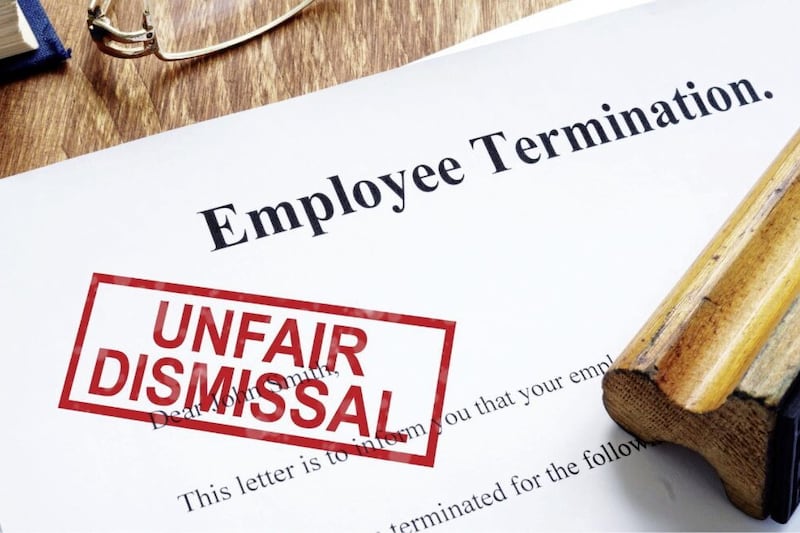UNFAIR dismissal occurs when an employer sacks an employee for reasons that are considered unfair by law.
Fortunately, there are laws in Northern Ireland to protect the rights of employees, and employers must abide by these laws when deciding to end employment.
Examples of unfair dismissal include being sacked for a minor or trivial incident, being dismissed upon returning from maternity leave or the employer failing to follow the statutory procedure in a disciplinary process.
If an employee feels that they were unfairly dismissed, they should try to resolve the matter with their employer and appeal the decision. If the employer upholds the dismissal, the employee has three months from the date on which their employment ended to lodge unfair dismissal proceedings. If they miss this date, it is very difficult to bring a claim out of time.
To make a claim for unfair dismissal, an employee must have been employed continuously for at least one year.
There are instances where a dismissal is considered automatically unfair, such as if an employee is dismissed for:
• Raising health and safety concerns, or
• For making a flexible working request or
• Asks for their legal right to the National Minimum Wage or holiday entitlement.
In these cases, the one-year time period does not apply.
Employees may be entitled to compensation if they decide to pursue an unfair dismissal claim. The amount of compensation depends on the circumstances and losses resulting from the unfair dismissal. It is advisable to seek independent legal advice as soon as possible in such cases as there are strict limitation periods in place.
In many instances, unfair dismissal claims can be settled early through mediation, but if a settlement cannot be reached, the case can proceed to the Office of the Industrial Tribunal and Fair Employment Tribunal, where a Judge will decide if the employer is liable for unfair dismissal and award damages if so.
Unfortunately, in Northern Ireland, Tribunal legal fees cannot be added to a claim against an employer.
However, there are several funding options available, such as legal expenses cover under a home insurance policy, and an expert employment solicitor can advise on this.
Some employees may be able to access support from the Equality Commission NI, the Labour Relations Agency or a trade union if they are a member.
If there is one key takeaway from this column, it is that employees should seek out legal advice without delay.
It is rare for the limitation periods to be waived. Early advice could prevent a disappointing early outcome.
:: Glenn Reid (Twitter: @glenn_reid_) is a legal marketing specialist and marketing manager of McCartan Turkington Breen Solicitors (https://mtb-law.co.uk/)








